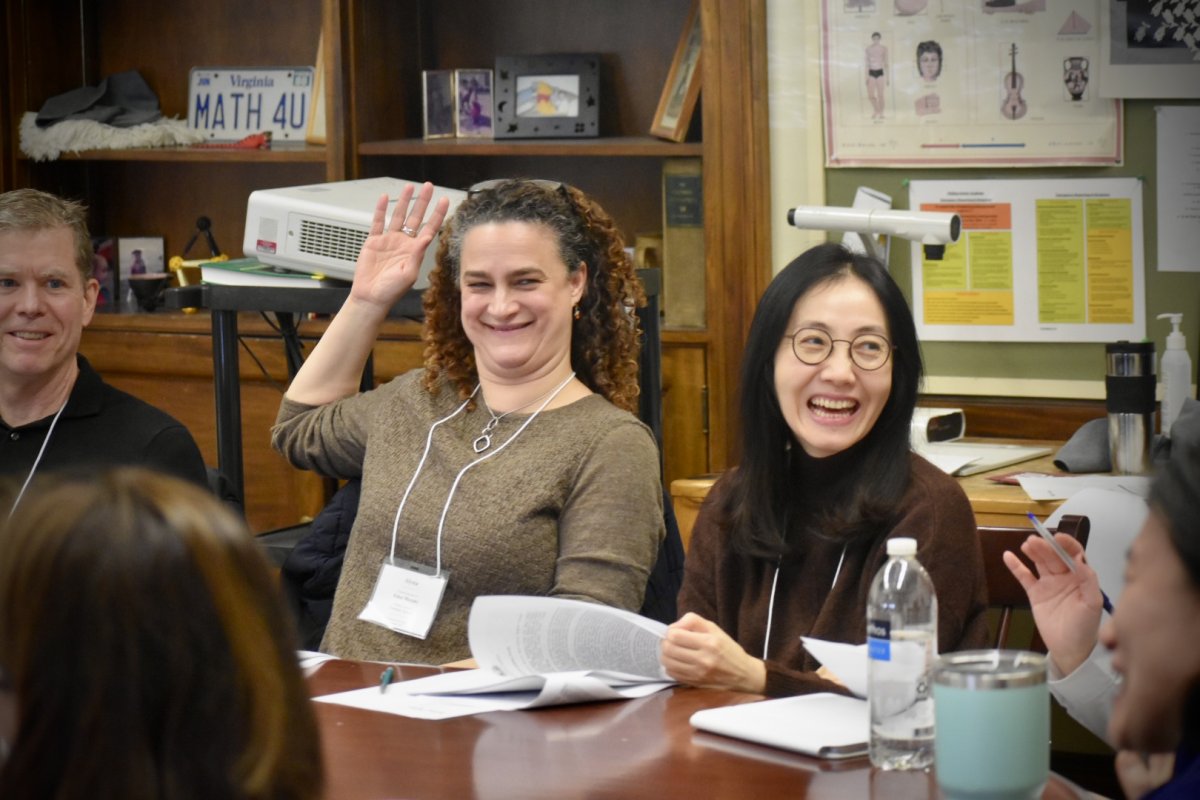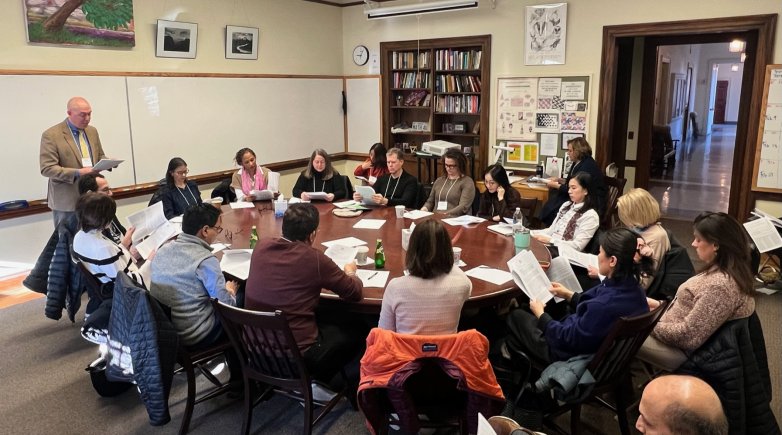College admissions process melds art and science
College Counseling Office's annual College Admissions Weekend aims to smooth the way after Exeter.
Hundreds of Exeter parents walked in the shoes of college admissions officers over the weekend to learn about the art and the science of choosing an incoming class.
The mock admissions workshops, in which parents and admissions professionals meet, discuss and ultimately choose from among three imagined candidates, were part of the College Admissions Weekend program. The event, hosted annually by Exeter’s College Counseling Office for parents of 11th-graders, offers a peek behind the curtain at what goes into those decisions and shares critical knowledge to make the admissions process as painless as possible.
A highlight of the weekend was the keynote address by Dr. Anthony Jack, an assistant professor of education at the Harvard Graduate School of Education who has researched how class and culture shape how undergraduates navigate college. Jack’s book The Privileged Poor: How Elite Colleges Are Failing Disadvantaged Students, digs into the stratification of lower-income students: Those he calls the “privileged poor,” who matriculate from boarding and private schools, and the “doubly disadvantaged,” those who arrive at college from local, typically distressed public schools.
Jack notes how elite American universities take pride in enrolling an increasing number of students of color and more students from low-income families, but many among those number are the “privileged poor,” hailing from elite secondary institutions. Those students already are familiar with the culture of private schools and know how to take advantage of the resources and the systems of support available to them. Meanwhile, those who go straight to selective colleges from “forgotten neighborhoods and neglected schools” don’t take advantage of the resources because they have never benefitted from them. That, in turn, puts them at a distinct disadvantage to thrive.

Jack's research shows that although first generation and lower-income students make up roughly 50% of the students at four-year schools, just 14 percent of undergraduates at the most competitive colleges come from the bottom half of income distribution. Thirty-eight U.S. colleges — those considered among the most selective in the country — have more students in the richest 1 percent of the population than the bottom 60 percent, he notes.
The mock admissions workshops on Saturday morning deployed 11 college admissions officers from schools such as Dartmouth, Princeton and Carnegie Mellon to lead Harkness discussions about potential “candidates.” Each of the three fictional student profiles told a story of an exceptional student with good grades, a variety of extra-curricular interests and strong recommendations from their instructors and advisers.
The parents at each table had to come to a consensus on one student to enroll, one student to put on a waitlist and one student to turn down. Those hard decisions exemplify what college admissions officers face each spring while considering thousands of applicants for placement.
